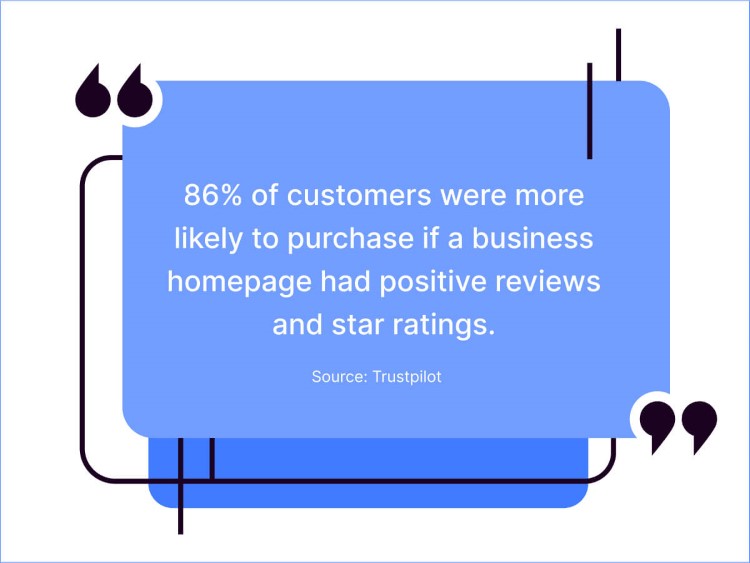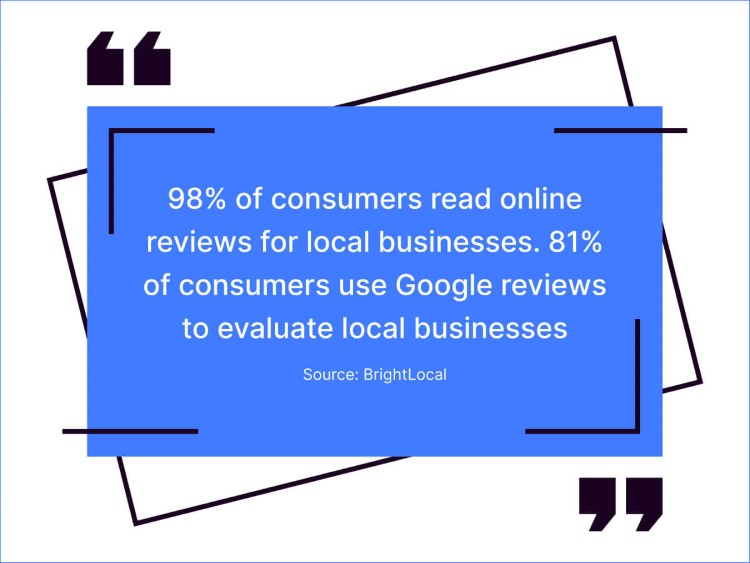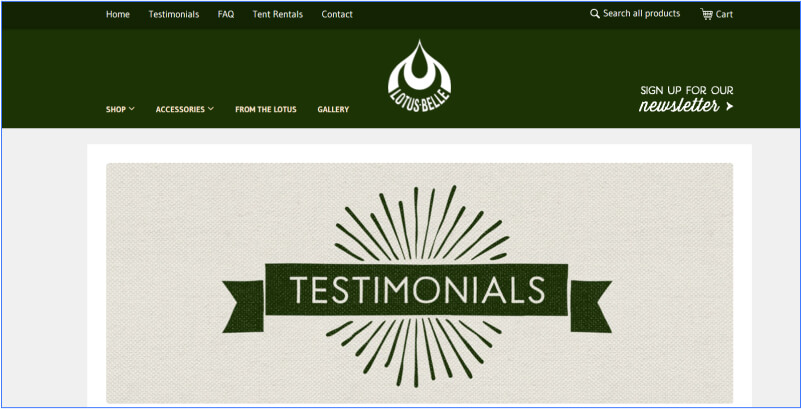Cracking the Code: Learn How to Get Customer Testimonials
- October 5, 2023
- 12 mins read
- Listen

Table of Content
Surprisingly, your most effective sales representative is not the best asset in your organization. It’s your loyal customers who deliver the most persuasive sales messages as testimonials. Traditional forms of business communication, such as marketing, advertising, and sales, are experiencing a decline in trust among consumers. Indeed, a substantial 55% of consumers have lost faith in companies, whereas an astonishing 92% of shoppers trust online reviews just as much as they do personal recommendations. So how to get customer testimonials? Well, don’t worry. I am here to guide you!Potential customers, those inquisitive individuals who are on the verge of trusting your products or services, seek persuasion. They desire the confidence that choosing your offerings is a wise decision, one that won’t lead to regret after their money is spent. A happy customer’s strong recommendation can really boost your business’s reputation.In today’s landscape, acquiring word-of-mouth referrals and customer testimonials is essential to persuade new prospects to choose your business. In the following section, we will outline the fundamental steps. So, keep reading this space to know more. 

 Marucci is a well-known brand in the world of baseball and softball equipment. The company was founded in 2002 by Jack Marucci and Kurt Ainsworth. On Marucci’s homepage, you’ll find an enticing invitation accompanied by a striking image, featuring a quote and a clear call-to-action (CTA), inviting visitors to explore a compelling case study.Here customers have the opportunity to delve deeper into Amanda Lorenz’s remarkable evolution before making an informed decision about whether Marucci aligns with their needs.
Marucci is a well-known brand in the world of baseball and softball equipment. The company was founded in 2002 by Jack Marucci and Kurt Ainsworth. On Marucci’s homepage, you’ll find an enticing invitation accompanied by a striking image, featuring a quote and a clear call-to-action (CTA), inviting visitors to explore a compelling case study.Here customers have the opportunity to delve deeper into Amanda Lorenz’s remarkable evolution before making an informed decision about whether Marucci aligns with their needs. Patagonia is an American company that makes outdoor clothing and gear and cares a lot about the environment and being socially responsible.Generating authentic enthusiasm through customer testimonials can be challenging, but Patagonia’s “Worn to Wear” narratives bring an extra layer of fascination by showcasing customers’ escapades while sporting Patagonia apparel. By incorporating glimpses of customers embarking on daring journeys, prospective buyers can easily envision themselves enjoying extensive hikes and explorations, all while outfitted in Patagonia attire.This strategy demonstrates the depth of people’s affection for the brand, instilling trust in potential buyers and strengthening their brand image, purpose, and ethos. The inclusion of emotional elements in these narratives underscores the effectiveness of a personal connection when harnessing the full potential of customer testimonials.
Patagonia is an American company that makes outdoor clothing and gear and cares a lot about the environment and being socially responsible.Generating authentic enthusiasm through customer testimonials can be challenging, but Patagonia’s “Worn to Wear” narratives bring an extra layer of fascination by showcasing customers’ escapades while sporting Patagonia apparel. By incorporating glimpses of customers embarking on daring journeys, prospective buyers can easily envision themselves enjoying extensive hikes and explorations, all while outfitted in Patagonia attire.This strategy demonstrates the depth of people’s affection for the brand, instilling trust in potential buyers and strengthening their brand image, purpose, and ethos. The inclusion of emotional elements in these narratives underscores the effectiveness of a personal connection when harnessing the full potential of customer testimonials. Lotus Belle is a brand known for its high-quality and innovative camping tents and outdoor shelters. The company’s tents are particularly renowned for their unique design, durability, and spaciousness. It has a specialized testimonial section on their website, and their approach is intriguing. They’ve organized testimonials based on various customer concerns such as wind durability, product quality, size suitability, and more. Additionally, they’ve included testimonials from celebrities as well as feedback from corporate clients.
Lotus Belle is a brand known for its high-quality and innovative camping tents and outdoor shelters. The company’s tents are particularly renowned for their unique design, durability, and spaciousness. It has a specialized testimonial section on their website, and their approach is intriguing. They’ve organized testimonials based on various customer concerns such as wind durability, product quality, size suitability, and more. Additionally, they’ve included testimonials from celebrities as well as feedback from corporate clients.

Customer Testimonials Defined: A Closer Look
A customer testimonial is a perspective shared by someone who has purchased or utilized your products or services. It represents the level of satisfaction a customer has, encompassing everything from the actual products or services to their overall experience, including communication and customer service.The distinction between a customer testimonial and a typical review lies in the fact that you seek a testimonial from your customers, usually when you are already aware of their satisfaction with your brand.Businesses frequently utilize customer testimonials on their websites to instill trust and assurance. However, these testimonials can also find a place on social media, be incorporated into sales brochures, and serve as a means to recognize and reward colleagues who are specifically mentioned.It’s crucial for a customer testimonial to be composed by the customer in their own words, without any influence from you. Nevertheless, it’s acceptable to provide some direction by suggesting potential topics their testimonial could touch upon, such as speedy delivery, the product or service quality, customer service, problem-solving, and any positive outcomes resulting from their purchase, which is especially relevant for service-oriented businesses.One additional consideration: It’s crucial to seek your customer’s consent if you intend to utilize their testimonial in a public forum.Boost Your Brand: Why You Need to Request Customer Testimonials
Would you make a purchase from a company if you couldn’t locate a single review confirming its excellence? We wouldn’t either. With a large number of customers openly admitting to perusing online reviews before making a purchase, it’s challenging to underestimate the significance of these concise yet impactful insights in the realm of business.Today’s markets are often oversaturated with rivals. Thus, when you aim to attract new customers, it’s essential to utilize every available tool. Customer testimonials serve as a fantastic method to demonstrate to consumers that your products or services merit their investment, enabling you to differentiate yourself from competitors.Customer testimonials also lend credibility to your brand. We’ve all come across tales of individuals who have made online purchases, only to discover they’ve been deceived by a less-than-reputable “business.” A collection of positive testimonials provides prospective buyers with the assurance that your business is genuine and that your offerings deliver on their promises.The majority of customers are usually willing to offer a testimonial, so don’t hesitate to ask for one—especially when you’re confident with your service and when the customer is satisfied with your brand. You can even consider introducing incentives, which we’ll discuss further below.How to Get Testimonial from your Customers: 10 Best Ways
Reviews are essential for businesses of all scales to attract new customers and establish trust. But how to get customer testimonials? It can be a straightforward process—sometimes, all you have to do is request them. Here are a few ethical and professional methods to accomplish that.1. Ensure Timing is Appropriate
To begin, examine your customer base and their interaction with your product or service to pinpoint the most opportune moment to request a testimonial. Ideally, you should seek testimonials after the customer has achieved success with your product or service. This ensures they are satisfied with the results and your professional relationship when they undertake the task of composing or recording a testimonial.For those employed at a marketing agency, the perfect timing could be following a month in which you’ve helped your client surpass their objectives. On the other hand, if you’re part of a SaaS company, the optimal moment might be when the customer has been using your product for 30 days. Collaborate with your team and analyze your customer health data to identify the specific milestones that indicate a customer’s success before you initiate your request.2. Decide Whether to Employ Automation or Personally Send Requests
Depending on when you ascertain the most suitable moment for collecting testimonials from your customers, you may discover that email automation is a more fitting approach for soliciting their feedback.For instance, if customers are utilizing a free software tool and have minimal interactions with customer support, deploying an automated testimonial request email template at the point when they achieve success with the product might be a more suitable approach.Nevertheless, if you serve as a customer success manager or account manager and maintain regular interactions with customers, it may be more effective for you to gauge the ideal timing for sending the request based on your conversations.3. Offer Customers Compelling Reasons to Agree
Irrespective of your role, if you’re a person with an email address, chances are your inbox gets flooded with messages daily. Thus, if you want your valued customers not only to open your email but also to provide a testimonial, you must provide them with a compelling reason to do so.One straightforward approach to achieve this is by offering an incentive for submitting a testimonial, such as a gift card or company merchandise of their preference. If this isn’t feasible for your company, you can craft a persuasive request email to clarify the mutual advantages of both of you sharing a testimonial, ultimately convincing them to participate.4. Present Various Convenient Options
Provide your customers with the choice to either write or record video testimonials for your website.Recognize that individual preferences and accessibility may make one method of submission more convenient for some customers than others. Ensure that you facilitate customers in providing you with a positive testimonial in their preferred format. You can offer them the flexibility to:- Record a brief video from the convenience of their workplace.
- Compose 2-3 paragraphs to outline their achievements (you can provide prompts or questions).
- Engage in a “social media takeover” by sharing their testimonial on your company’s Instagram, Twitter, Facebook, and LinkedIn accounts.
- Take part in a live interview on one of your social media platforms.
- Act as a guest on your podcast, if applicable.
5. Ask Simple Questions that Generate Powerful Customer Quotes
The words of your customers can greatly influence how effective a testimonial is with potential customers. When you ask thought-provoking testimonial questions, you encourage your customers to delve deeper into why they are pleased with your service. This approach makes their testimonial more relatable to prospects who may find a connection with the review.Opt for open-ended questions to encourage more detailed responses and avoid one-word answers. Select questions that not only capture their feelings about your service but also elicit their narrative: the challenges that drove them to seek a solution, what led them to choose you as their provider, their expectations, and their overall experience throughout the journey.6. Create a Dedicated Testimonial Page on Your Website
If you haven’t done so already, begin the process of creating a testimonial page on your website. This page can take the form of a comprehensive collection of testimonials or a gallery/grid that provides links to individual testimonial entries.Our suggestion is to emphasize a unique aspect of your product with each testimonial. For example, one client may be based internationally, underscoring the availability of your product in multiple languages. Another testimonial could come from a small brand, demonstrating that your product is well-suited for smaller businesses.7. Ask if They’d Recommend Someone from Their Network
This approach can yield various outcomes. In a phone conversation with your customer, it may come across more naturally to inquire if they are aware of any other professionals in their network who could also benefit from the services you’ve provided. If the customer is ready to share referrals, that is the best for you. If your customer responds with a “no” and cannot provide a referral, you can smoothly transition to the testimonial request. You might say, “I would greatly appreciate more people discovering the excellent work we’ve accomplished together. If you don’t have anyone to refer to, would you consider leaving us a review so that others can learn about our collaboration?”Regardless of the outcome, you’ll achieve a favorable result that, hopefully, will attract new customers.8. Inform Them of the Backlink to Their Websites
Whether the testimonial will appear on your website or one of your social media platforms, it’s essential to include a link to your customer’s website. This is important for several reasons:- A backlink can serve as an incentive for customers knowledgeable about SEO.
- For those less familiar with SEO, you can mention that it can enhance their Google rankings.
- Additionally, showcasing your practice of providing backlinks may attract other customers who wish to leave testimonials with you.
9. Provide the Choice of a Concise Testimonial
The reality is, that the sum of the “no” responses you receive may be a result of time constraints. Always offer the option for a brief testimonial. For example, you can suggest they provide just one to two sentences, which is manageable even for the busiest of clients.You can also employ more imaginative approaches when making your request. You might suggest they:- Summarize their thoughts about your company in under 240 characters, the length of a Tweet, which you can then post and tag them in.
- Write a few descriptive words about your products or offerings.
- If your brand adopts a casual tone, invite them to select 2-3 emojis that represent their experience before and after using your product.
10. Craft a Proper Email for Requesting Testimonials
Ensure that you invest the effort to personalize each email for every customer relationship before hitting the ‘send’ button. Given the time you’ve spent nurturing these relationships, it’s essential to customize the email so that it aligns with the context of your specific interaction with each customer.Preparing a testimonial request email template involves crafting a message that is polite, clear, and persuasive. Here are some tips for you:- Address the recipient by their name and reference their specific experience with your product or service if possible.
- Provide clear instructions on how to submit the testimonial.
- Consider offering assistance if they encounter any difficulties.
- If you request a photo, assure them that it’s optional and that you will use it responsibly.

The Voice of Satisfied Customers: Best Examples
Now that you have understood the small tricks and strategies of collecting valuable testimonials from your customers, let’s delve into some of the online brands that excel in word-of-mouth advertising, beginning with… Marucci is a well-known brand in the world of baseball and softball equipment. The company was founded in 2002 by Jack Marucci and Kurt Ainsworth. On Marucci’s homepage, you’ll find an enticing invitation accompanied by a striking image, featuring a quote and a clear call-to-action (CTA), inviting visitors to explore a compelling case study.Here customers have the opportunity to delve deeper into Amanda Lorenz’s remarkable evolution before making an informed decision about whether Marucci aligns with their needs.
Marucci is a well-known brand in the world of baseball and softball equipment. The company was founded in 2002 by Jack Marucci and Kurt Ainsworth. On Marucci’s homepage, you’ll find an enticing invitation accompanied by a striking image, featuring a quote and a clear call-to-action (CTA), inviting visitors to explore a compelling case study.Here customers have the opportunity to delve deeper into Amanda Lorenz’s remarkable evolution before making an informed decision about whether Marucci aligns with their needs. Patagonia is an American company that makes outdoor clothing and gear and cares a lot about the environment and being socially responsible.Generating authentic enthusiasm through customer testimonials can be challenging, but Patagonia’s “Worn to Wear” narratives bring an extra layer of fascination by showcasing customers’ escapades while sporting Patagonia apparel. By incorporating glimpses of customers embarking on daring journeys, prospective buyers can easily envision themselves enjoying extensive hikes and explorations, all while outfitted in Patagonia attire.This strategy demonstrates the depth of people’s affection for the brand, instilling trust in potential buyers and strengthening their brand image, purpose, and ethos. The inclusion of emotional elements in these narratives underscores the effectiveness of a personal connection when harnessing the full potential of customer testimonials.
Patagonia is an American company that makes outdoor clothing and gear and cares a lot about the environment and being socially responsible.Generating authentic enthusiasm through customer testimonials can be challenging, but Patagonia’s “Worn to Wear” narratives bring an extra layer of fascination by showcasing customers’ escapades while sporting Patagonia apparel. By incorporating glimpses of customers embarking on daring journeys, prospective buyers can easily envision themselves enjoying extensive hikes and explorations, all while outfitted in Patagonia attire.This strategy demonstrates the depth of people’s affection for the brand, instilling trust in potential buyers and strengthening their brand image, purpose, and ethos. The inclusion of emotional elements in these narratives underscores the effectiveness of a personal connection when harnessing the full potential of customer testimonials.-
Lotus Belle
 Lotus Belle is a brand known for its high-quality and innovative camping tents and outdoor shelters. The company’s tents are particularly renowned for their unique design, durability, and spaciousness. It has a specialized testimonial section on their website, and their approach is intriguing. They’ve organized testimonials based on various customer concerns such as wind durability, product quality, size suitability, and more. Additionally, they’ve included testimonials from celebrities as well as feedback from corporate clients.
Lotus Belle is a brand known for its high-quality and innovative camping tents and outdoor shelters. The company’s tents are particularly renowned for their unique design, durability, and spaciousness. It has a specialized testimonial section on their website, and their approach is intriguing. They’ve organized testimonials based on various customer concerns such as wind durability, product quality, size suitability, and more. Additionally, they’ve included testimonials from celebrities as well as feedback from corporate clients.



